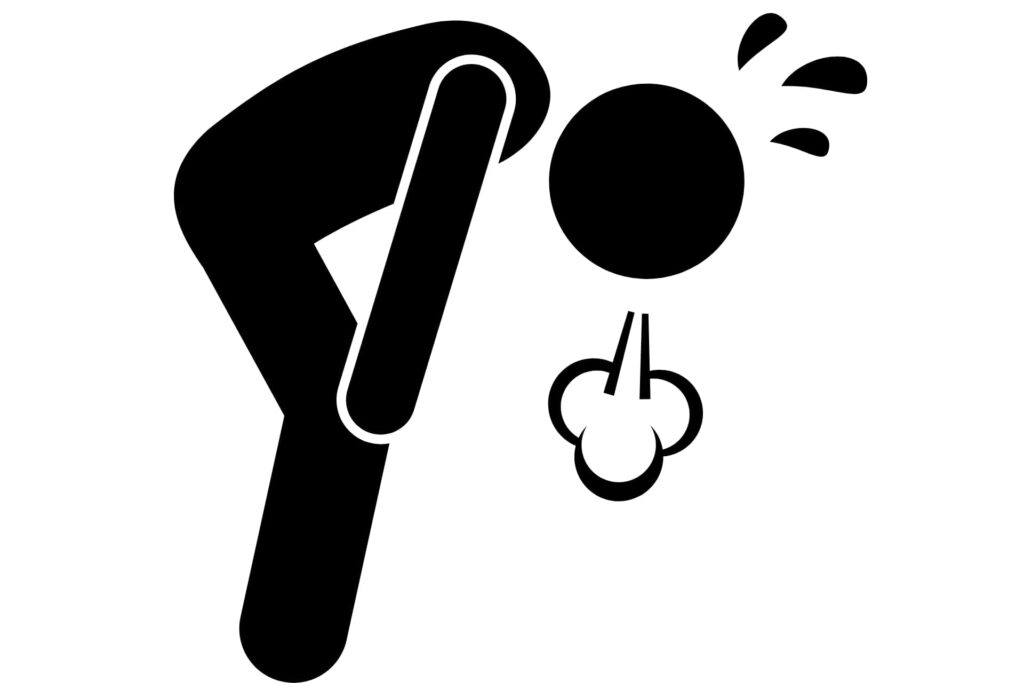
I am sure you are searching for “Why does your breathing rate increase when you exercise”. All of the questions coming to your mind will be answered here, but before going to the main topic, let me ask you a question.
Do you know what’s breathing?
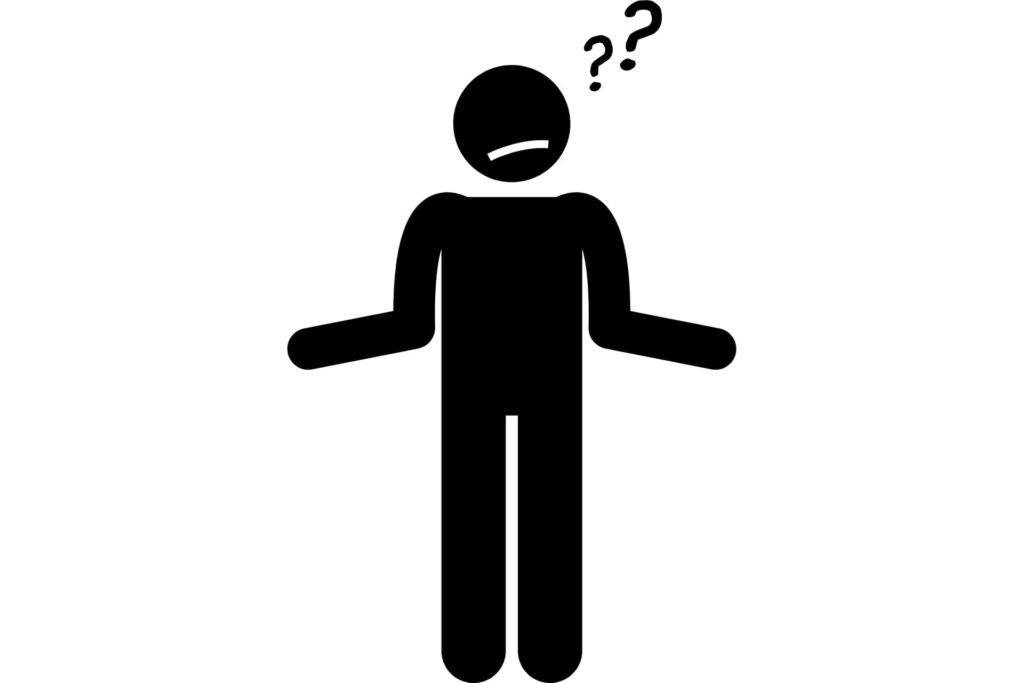
No, because I am confused about breathing, gaseous exchange, and respiration.
Don’t worry, I am here to explain it to you.
Why are these 3 terms to be explained instead of one (Breathing)?
Because these are related terms, people are often confused about them.
Breathing:
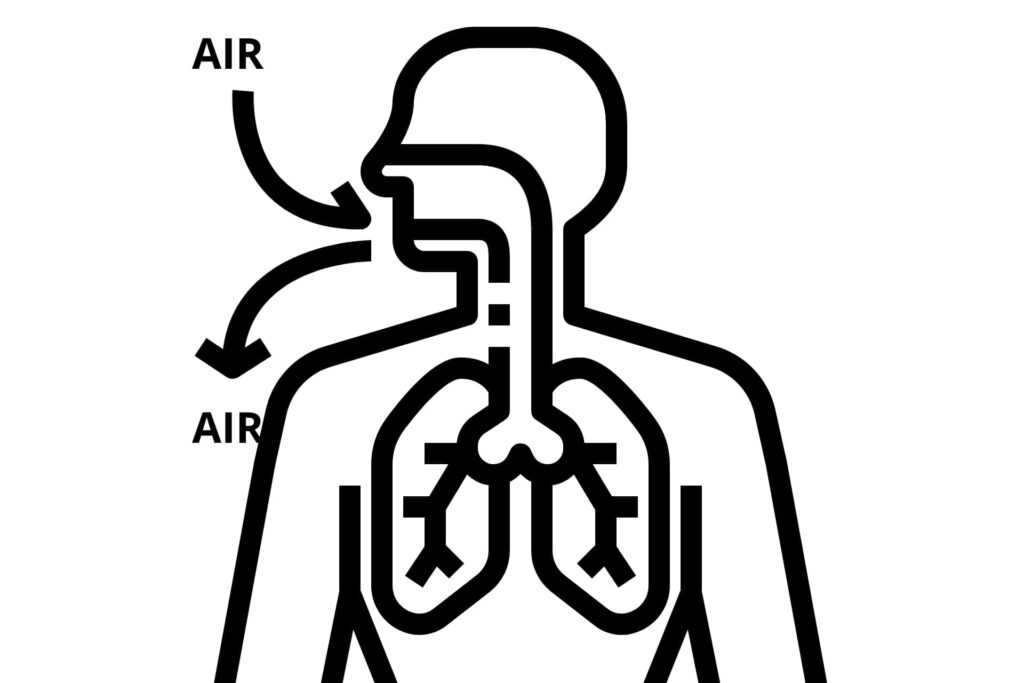
Breathing is just the inhalation and exhalation of air containing different gases.
Okay, that’s easy.
Gaseous exchange:
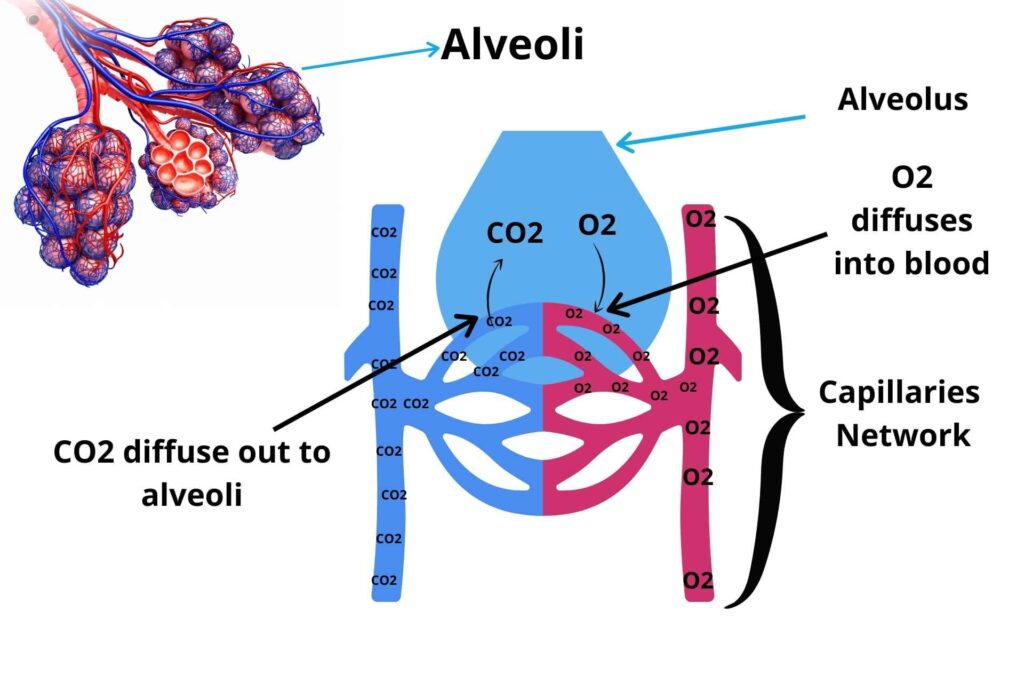
While the gaseous exchange is the taking of oxygen into the body and giving up carbon dioxide from the body.
But where does this process occur?
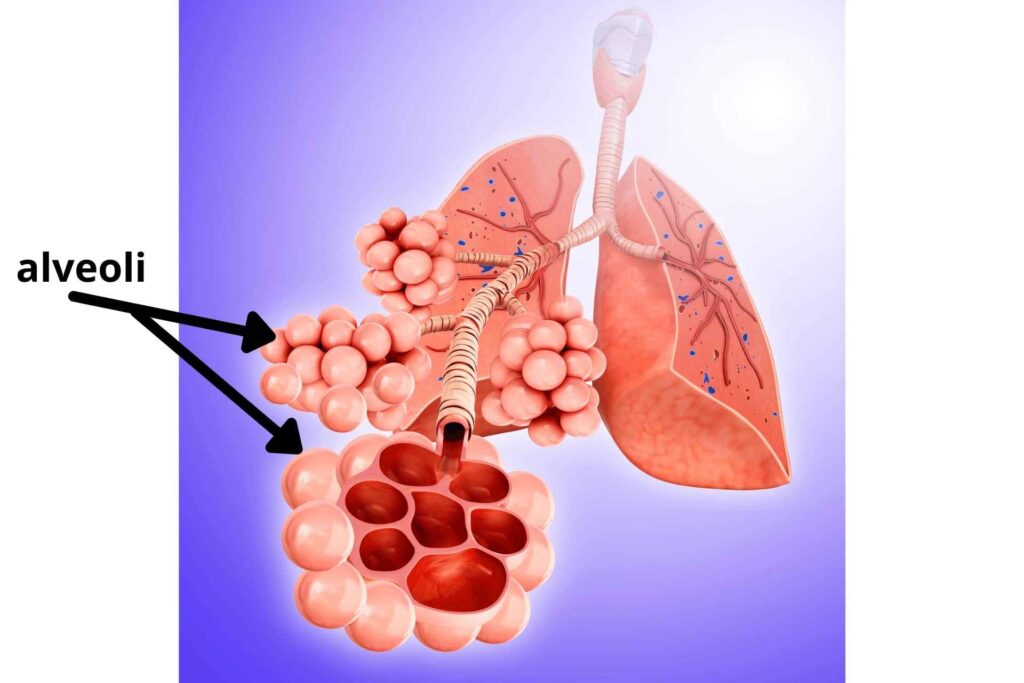
In the lungs. The alveoli are the gaseous exchange units in the lungs where gas exchange occurs, i.e., oxygen and carbon dioxide.
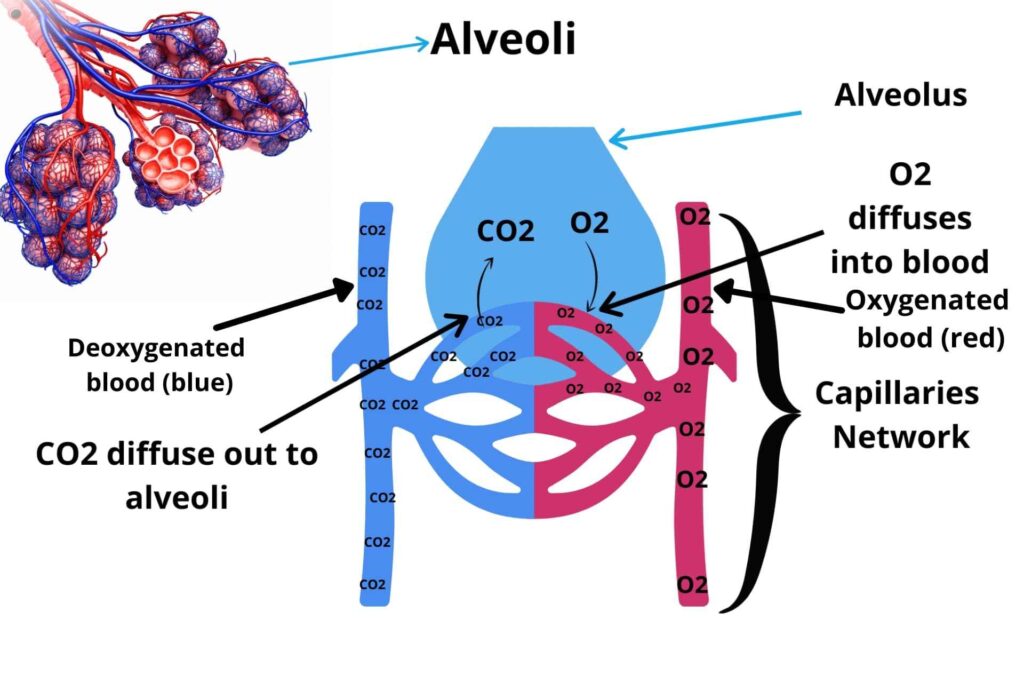
The alveoli are richly supplied with blood capillaries, which bring all carbon dioxide-rich blood from the whole body through the heart to the alveoli of the lungs and give up the carbon dioxide for expiration. Meanwhile, the blood (deoxygenated), giving up the carbon dioxide, gets the oxygen from the alveoli, becomes oxygenated, and is distributed throughout the body.
But what is the function of oxygen when it is distributed in the body?
Now you mean the third part of the question, i.e., Respiration.
Respiration:
Respiration is the process by which food is broken down on the molecular level in the presence of oxygen to release energy.
OR
It is an oxidation-reduction process in which food molecules are broken down to release energy.
Reaction:
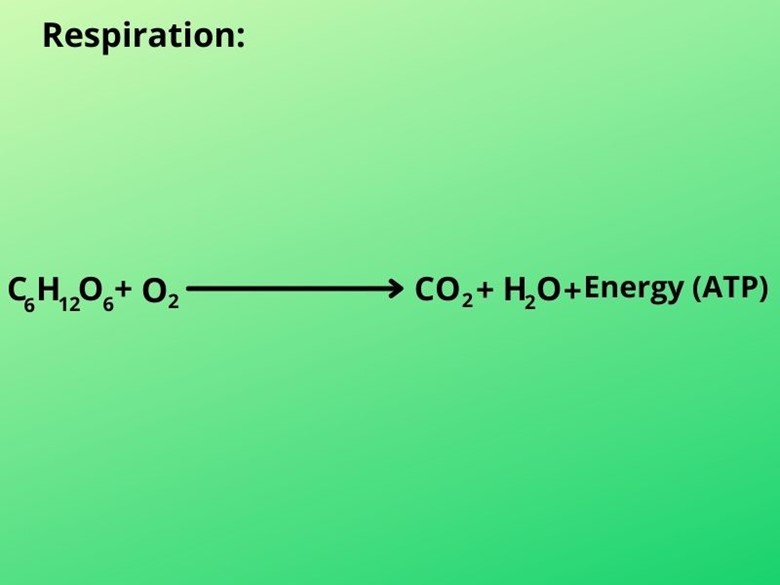
What is meant by oxidation-reduction?
Oxidation has three meanings. They are:
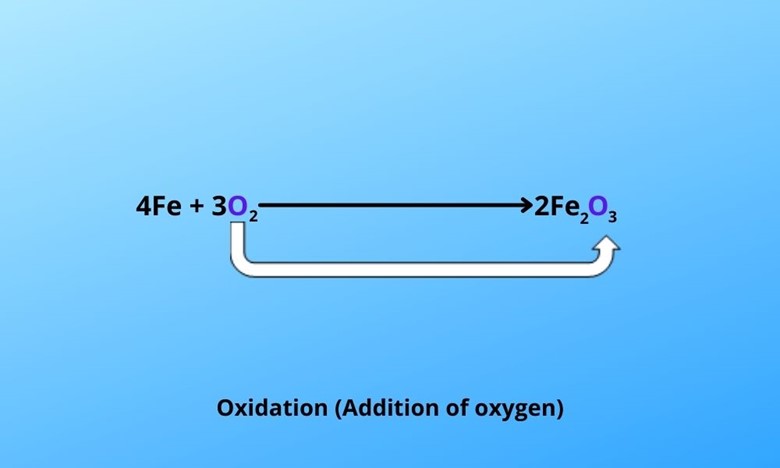
1. Addition of oxygen
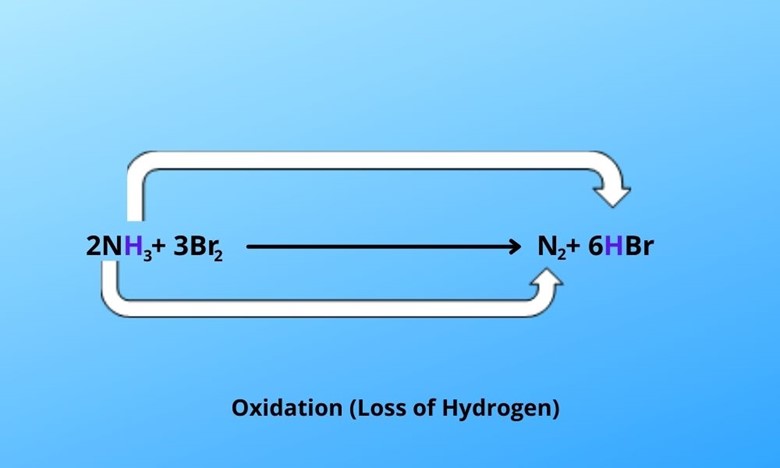
2. Loss of hydrogen from a molecule
Note: In the above reaction, hydrogen is lost from NH3, which is an oxidation reaction, and added to Bromine (Br2) which is a reduction process. This type of reaction where both oxidation and reduction processes occur simultaneously is called redox reaction or oxidation-reduction reaction.
2. Loss of hydrogen from a molecule
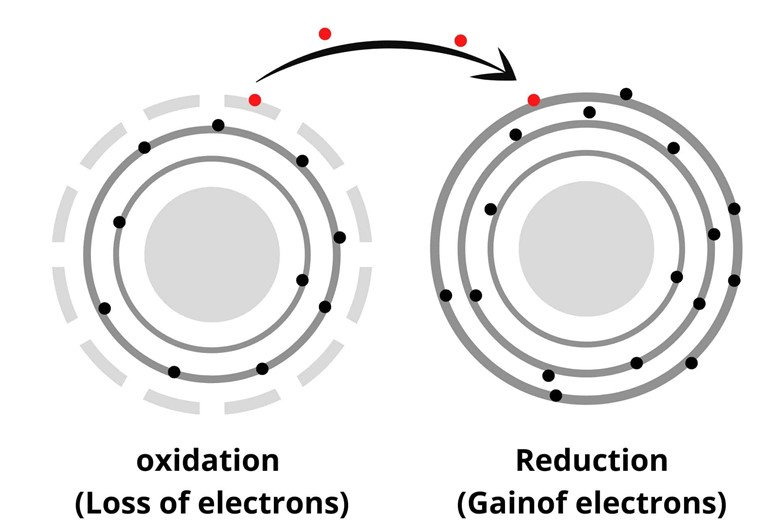
3. Loss of electron
Note: It’s also a Redox reaction.
While reduction is the opposite of oxidation it means:
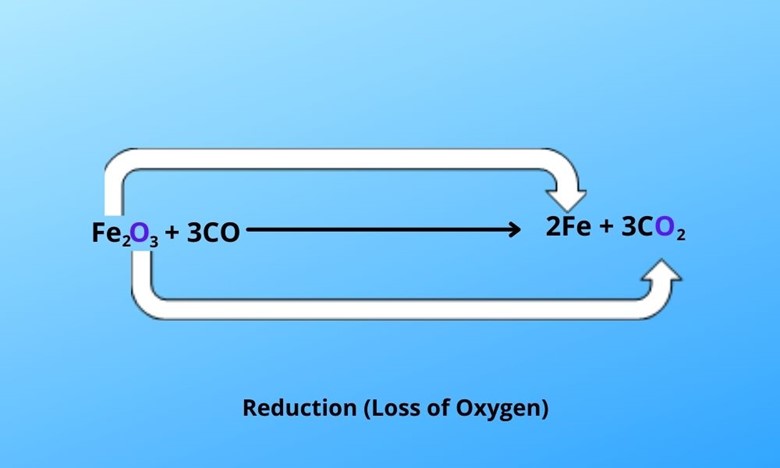
1. Loss of oxygen
Note: It’s also a Redox reaction.
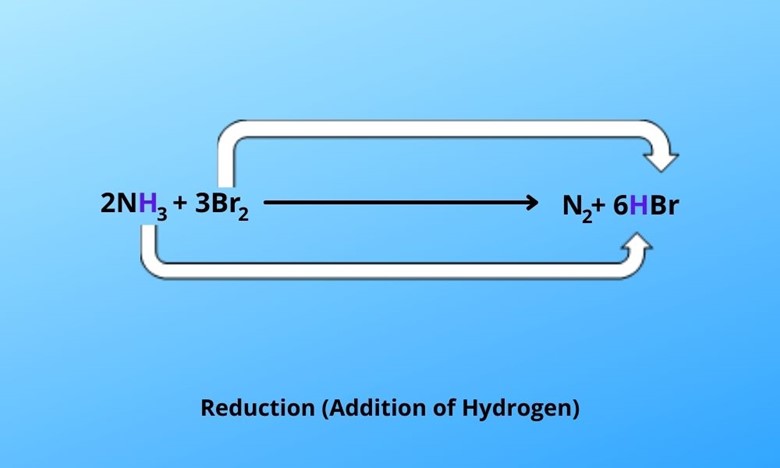
2. Addition of hydrogen
Note: It’s also a Redox reaction.
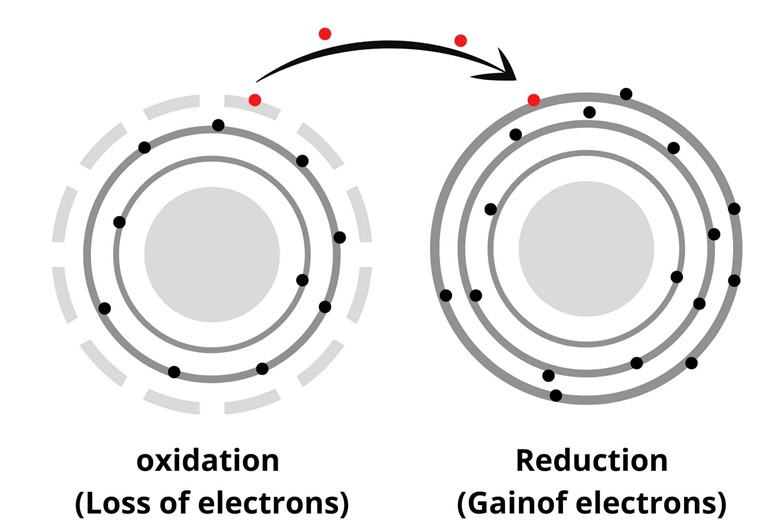
3. And the addition of electrons.
Note: It’s also a Redox reaction.
But here we are concerned with oxidation because respiration needs oxygen for food breakdown.
Is there any type of respiration?
Oh, excellent question. It is very important to ask this question.
There are generally two types of respiration.
I) Aerobic respiration:
It is that type of respiration that needs oxygen to burn and break down food molecules (carbohydrates, proteins, lipids, etc.).
II)Anaerobic respiration:
Respiration that occurs in the absence of oxygen is called anaerobic respiration.
Who does aerobic respiration and who does anaerobic respiration?
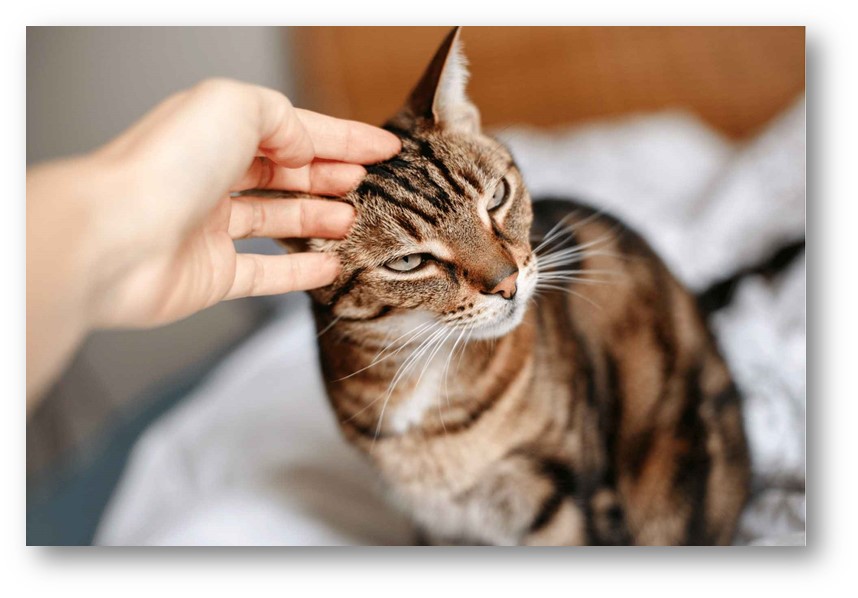
Higher organisms like humans, cats, dogs, etc. do aerobic respiration while

Lower animals like bacteria, archaea, fungi, etc. do anaerobic respiration.
Why do they do aerobic and anaerobic respiration?

As mentioned earlier oxygen helps in the breakdown of food molecules Some Aerobic organisms need more energy to do life activities that’s why they are provided with a high-concentration oxygen environment.
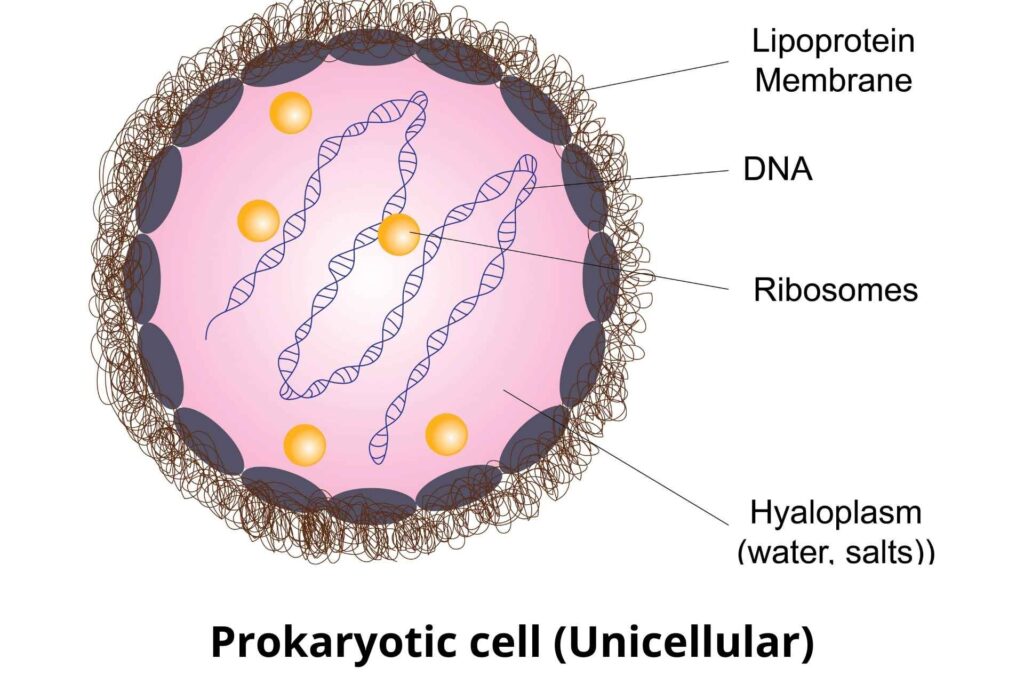
While anaerobic organisms don’t need much energy because they are mostly prokaryotes and unicellular, also they live in a low-oxygen environment That’s why they do anaerobic respiration to cope with life activities which are enough through anaerobic respiration.
Can aerobic organisms can live with anaerobic respiration?
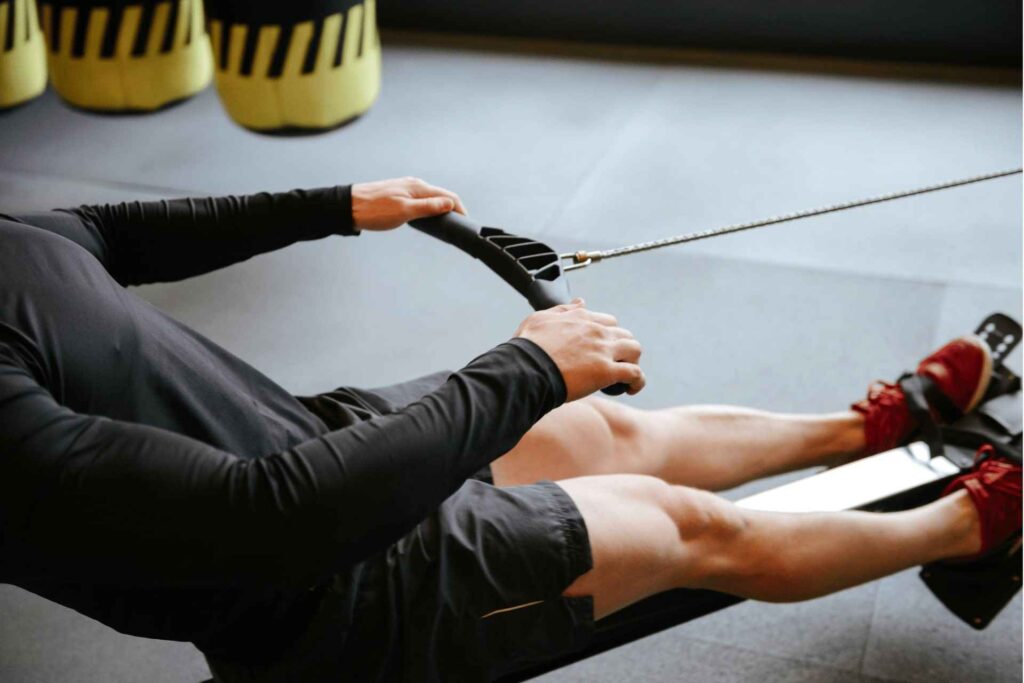
Well, in general, Aerobic organisms cannot live with anaerobic respiration but when there is a high demand for energy and oxygen and there is not a full supply of oxygen to all cells and tissues then these cells like muscle cells start anaerobic respiration to cope with the needs of energy.
Is there any side effect of this anaerobic respiration in aerobic organisms?
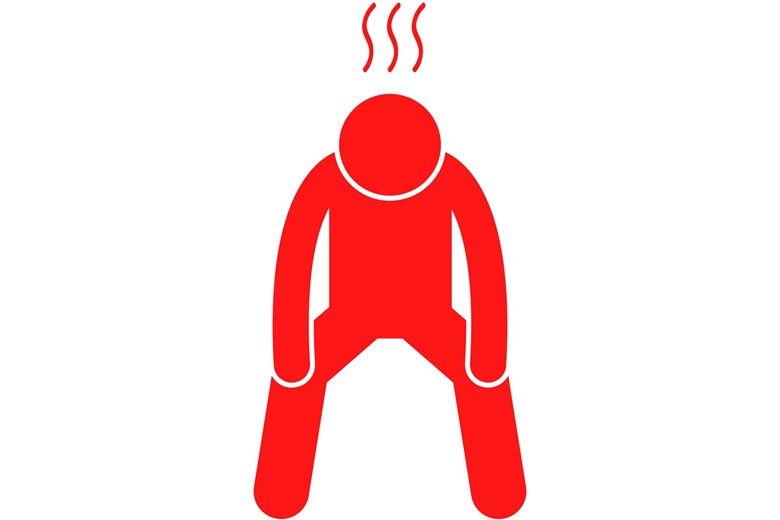
The only side effect of anaerobic respiration in aerobic organisms is that the anaerobic respiration produces lactic acid which causes fatigue to the muscle but it is very beneficial when there is less energy production than demand.
So did you understand the difference between breathing, gaseous exchange, and respiration and their types?
Yes, pretty much.
But why this stuff is taught here, We are asking about “Why does your breathing rate increase when you exercise” here?
Because these are the things that increase your breathing rate during exercise.
Let me ask you when you start exercise what happens to you?
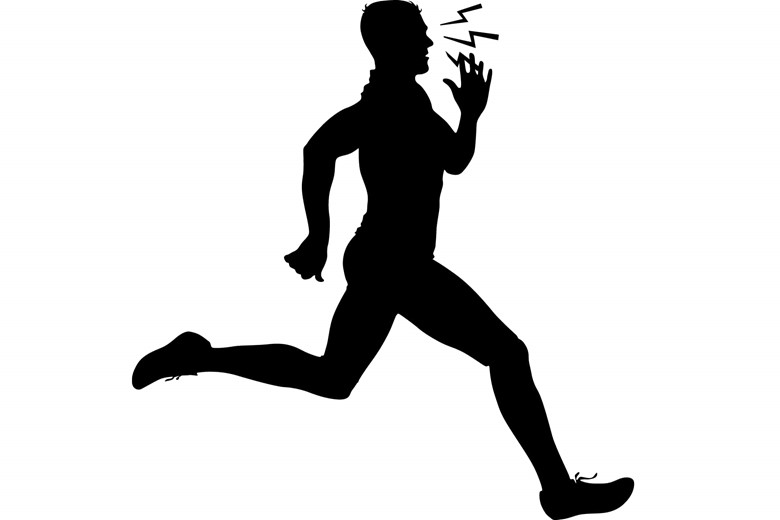
My rate of breathing increases when I start the exercise.
If I ask why?
Because of the more need for energy.
Do you know how?
Not well.
Okay, let me remind you again.
What is respiration?
In simple words the energy-releasing process in the presence of oxygen (we are not going to anaerobic respiration).
But how does oxygen come to the body?
Through breathing. Breathing brought about the air to the lungs where oxygen is exchanged and taken to the blood for respiration.
Now, did you get why the rate of breathing increases?
Yes, now it’s pretty much clear, why the rate of breathing increases during exercise.
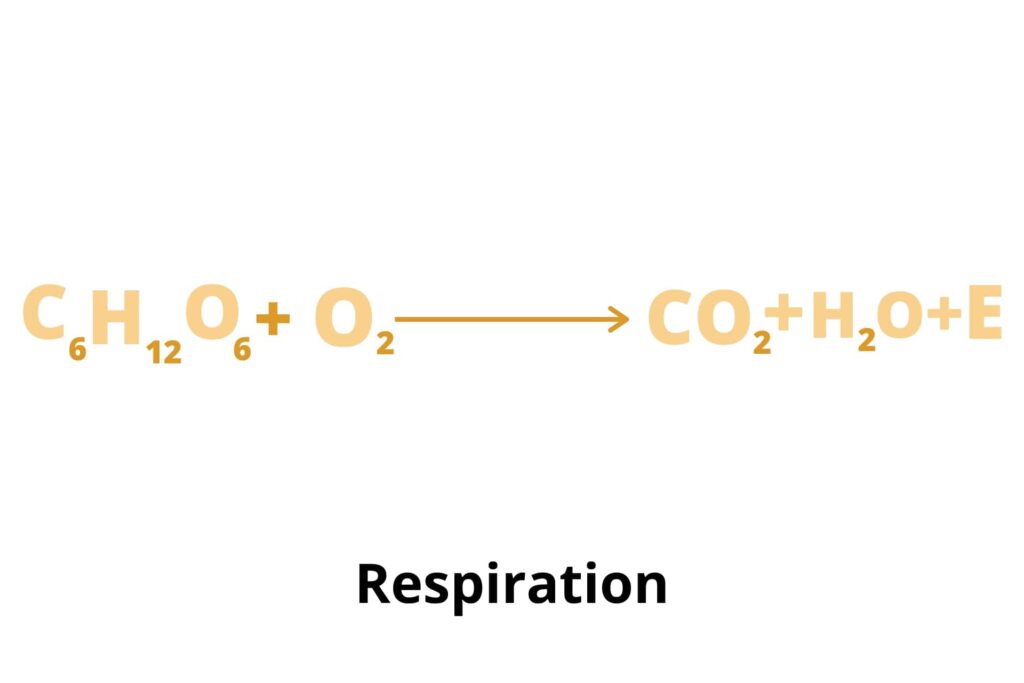
The exchanged oxygen is carried to the cells through blood where it breaks the food molecule (glucose) into carbon dioxide, water, and ATP (energy). The ATP is then used to give you energy while doing the exercise.
But Is it possible that this increased rate of breathing is not sufficient for the body’s demands?
Yes, it is possible.
Do you remember anaerobic respiration?
Yes, pretty much. In such a situation the cells start anaerobic respiration to fulfill their energy needs. Mostly the muscle cells (hands and legs) are the area where the anaerobic respiration starts because muscle cells are greatly and much involved in exercise, work, or other daily life activities but you also remember that anaerobic respiration produces lactic acid which causes fatigue in muscle cells.
And also the rate of heartbeat increase?
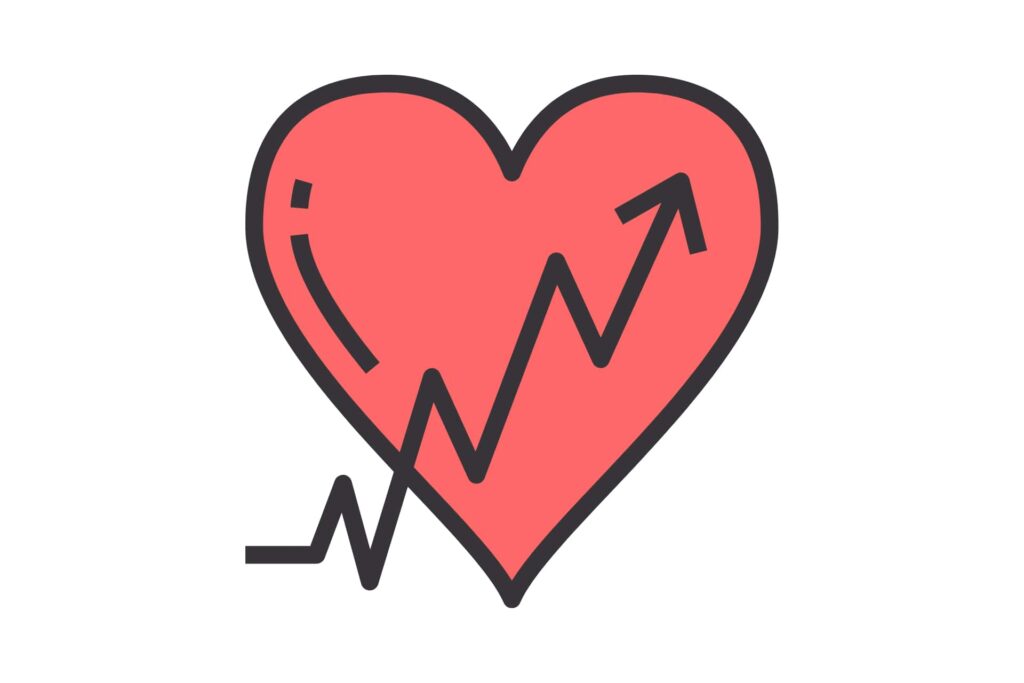
Yes, because the blood carries that oxygen to the cells and tissues, and blood is pumped and distributed from the heart. The increased heartbeat pumps more blood to the cells and tissues delivering more oxygen releasing more energy according to the needs, Moreover, the cells use that oxygen quickly so there is a rapid production of carbon dioxide (a waste product) which the lungs should remove too, therefore it also contributes to breath rapidly.
If the breathing rate were increasing and the heartbeat was normal then there would be no benefits of increased breathing as the blood will be flowing at the same speed so these processes are coordinated and work with each other at the same time.
What is the normal rate of breathing and how much does it increase while exercising?
The normal breath rate in an adult is 16-20 (12 liters of air per minute) at rest but in children, this value varies according to age. The value may increase up to 40 to 60 times per minute which is 100 liters of air.
These values are correct when there is no lung problem or disease. When your lungs are healthy you may feel “out of breath” after exercise but not “short of breath” and if there is any problem then it is possible that you may get “short of breath” instead of “out of breath” which can an unpleasant feeling but it is not dangerous.
What should I do in such a situation?
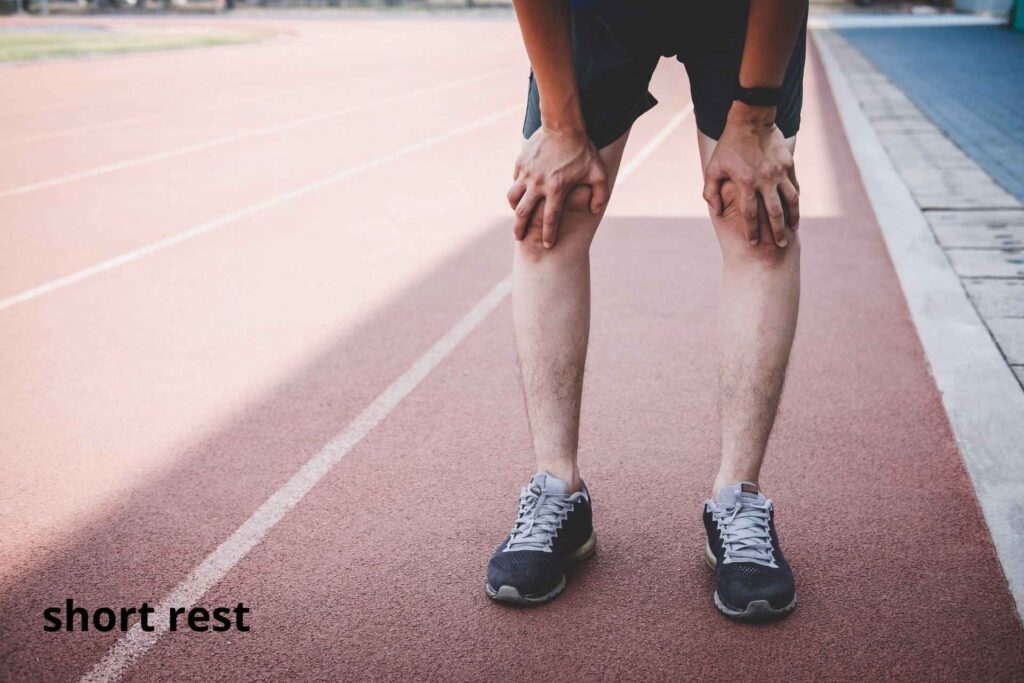
In such a situation when you feel out of breathing rate then stop your exercise and take some rest or just set a goal for exercise every day and increase it day by day with a few minutes.
How much should I exercise daily?
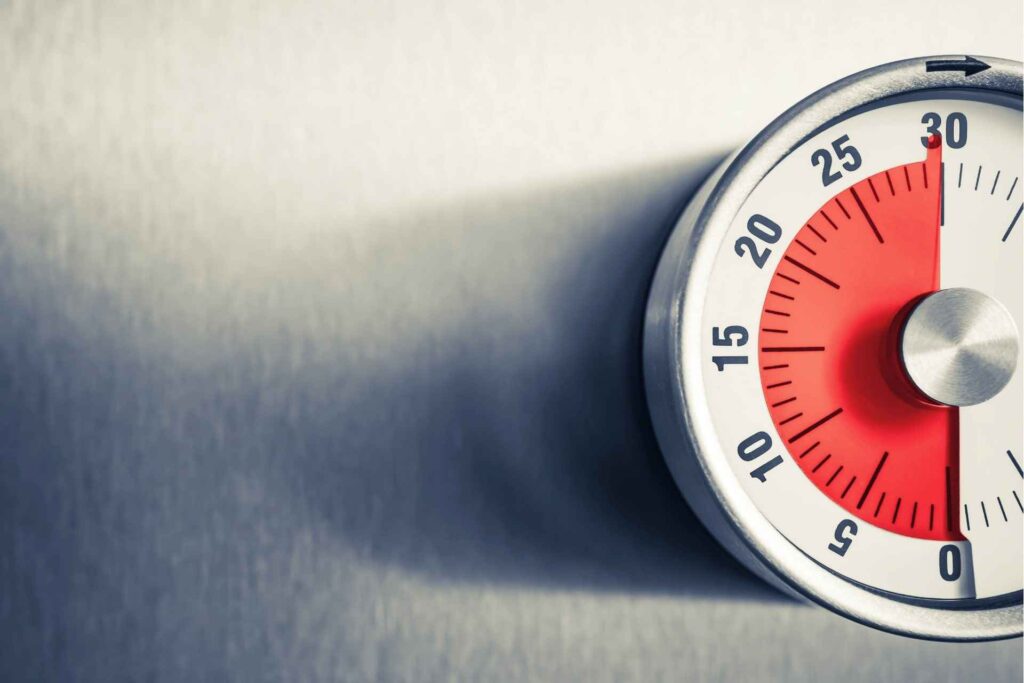
To stay healthy 30 minutes of moderate exercise is necessary. Moderate exercise means when a healthy person walks at a pace of 4 to 6 kilometers per hour but if it is for weight loss then it might be longer than an above-prescribed value.
How many days should I exercise a week?
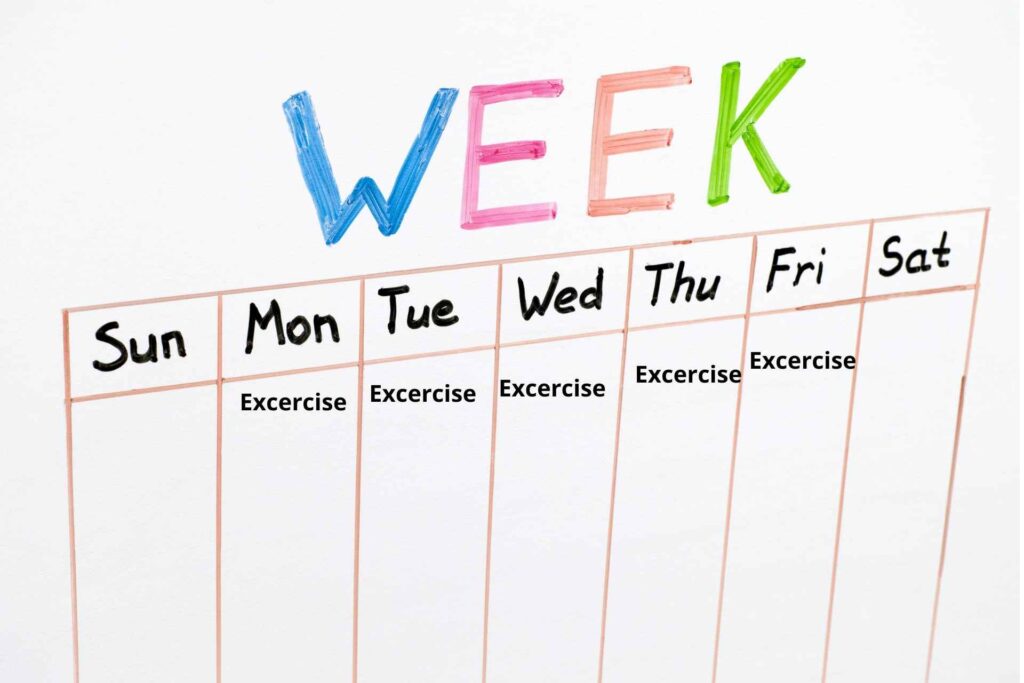
5 days a week is enough to get healthy health. You can also go with 6 days a week but one day of rest is a must so that the muscles and structures get back to their original position because exercise can displace them from their position which is not a big issue.
But if a person is a patient or has a medical condition then how much should he/she exercise daily?
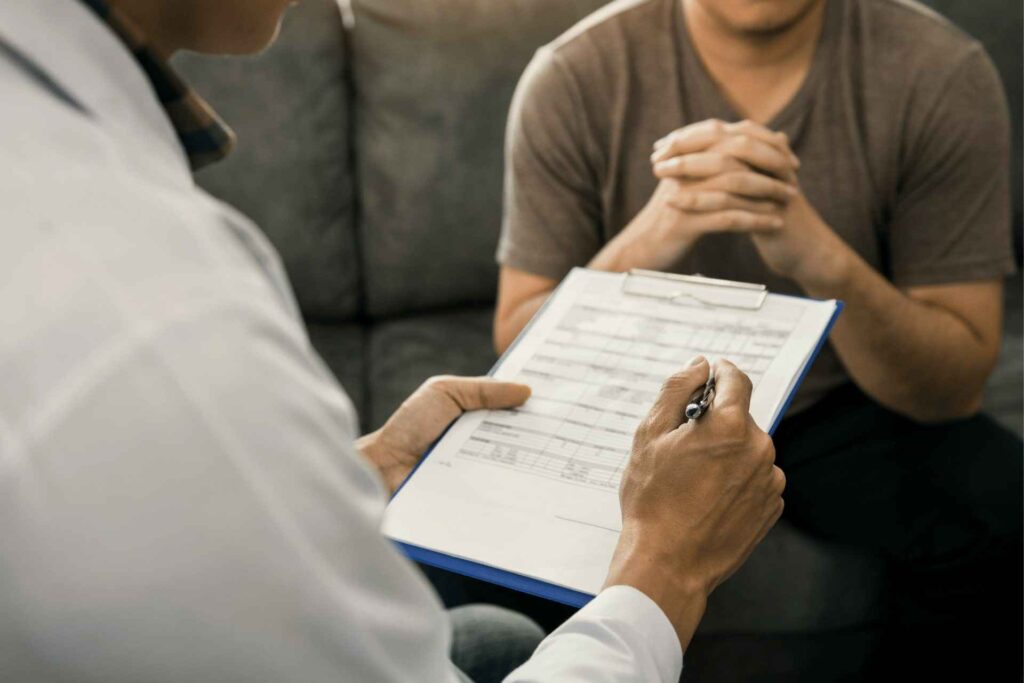
It should be consulted with the concerned doctor so that the doctor gives the best advice and best exercise with duration because the patient health care provider knows the condition of a patient so they exactly know what should be prescribed to the patient.
Will regular exercise have a beneficial effect on breathing?
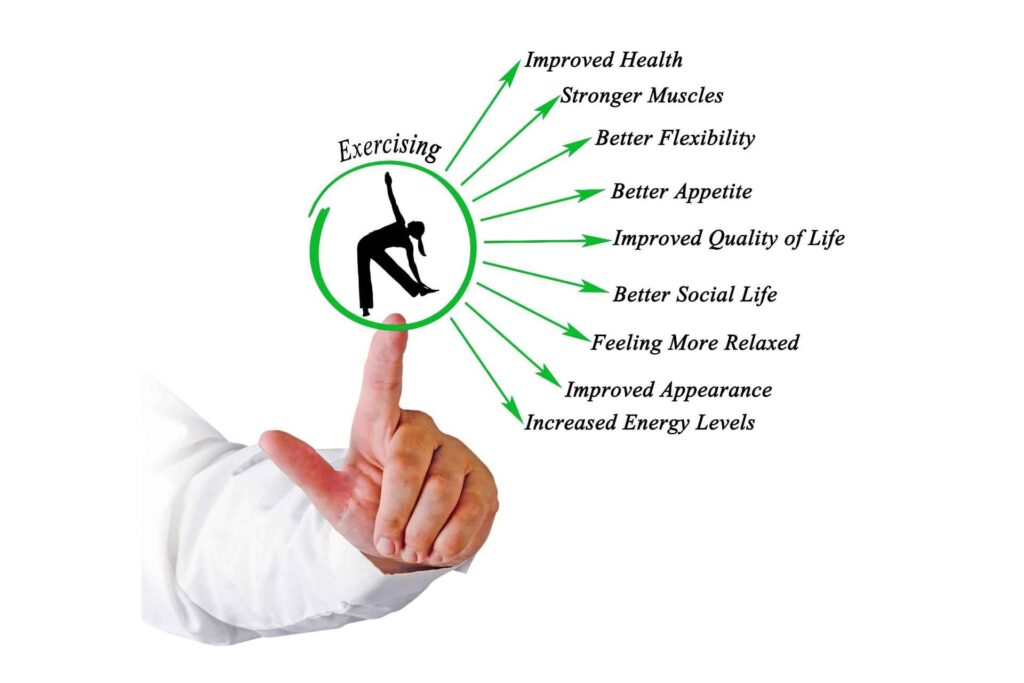
At the start when someone starts the exercise it is hard but when it is continuously carried daily and regularly then it becomes easier and you will feel no tiredness and fatigue while doing exercise. Regular exercise makes your muscles more efficient by increasing the strength and function of muscles which then require a reduced amount of air during breathing.
In short, exercise has not only a beneficial effect on the body but also improves your overall physiological and psychological health.
Can you tell us what agent can badly affect my breathing during exercise?
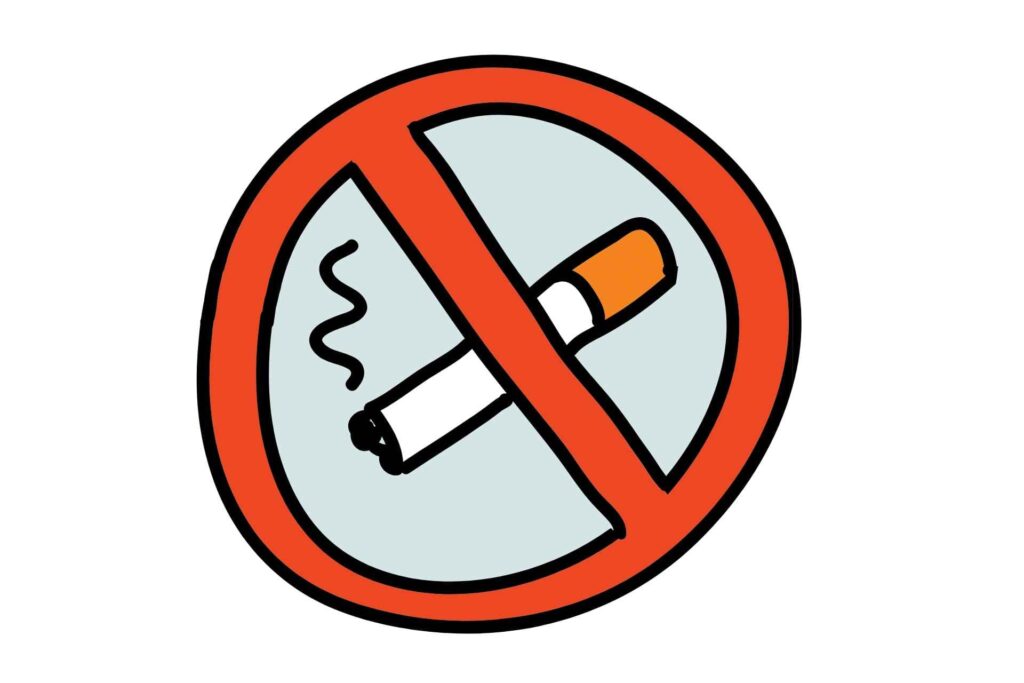
Smoking! strictly avoids smoking because it damages the air sacs (alveoli) within the lungs reducing the air capacity and it is more likely that you get tired soon in exercise if you are smoking.
Should I breathe through my mouth or nose?
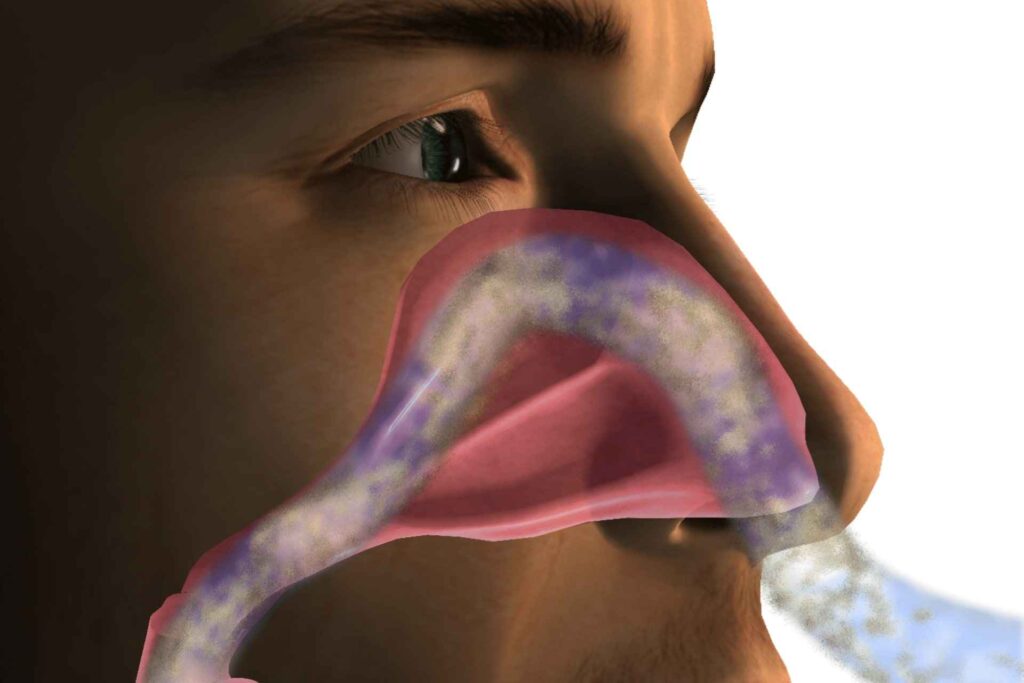
Especially in exercise and running nasal breathing is extremely preferred because the nose is designed especially for breathing which has the structure to filter, moisten, and warm the air before entering to lungs while the mouth is specially designed for ingestion and digestion of food, though breathing can be done through it. Oral breathing causes rapid dryness of the mouth which makes it difficult to continue the exercise further.
But if there are harmful agents in the environment then what should I do?
Good question.

Yes, there are some medical conditions such as exercise-induced asthma or bronchial hyperresponsiveness (a condition in which the airways become blocked after exercise) which can be caused by a certain environment where harmful substances such as chlorine in swimming pools, cold dry air on a ski slope are present.
In such a situation, before the start of exercise, bronchodilators can help to prevent bronchoconstriction if it is taken 10 minutes before exercise. Your health care provider can give you more advanced than this.
Is taking water during exercise good?
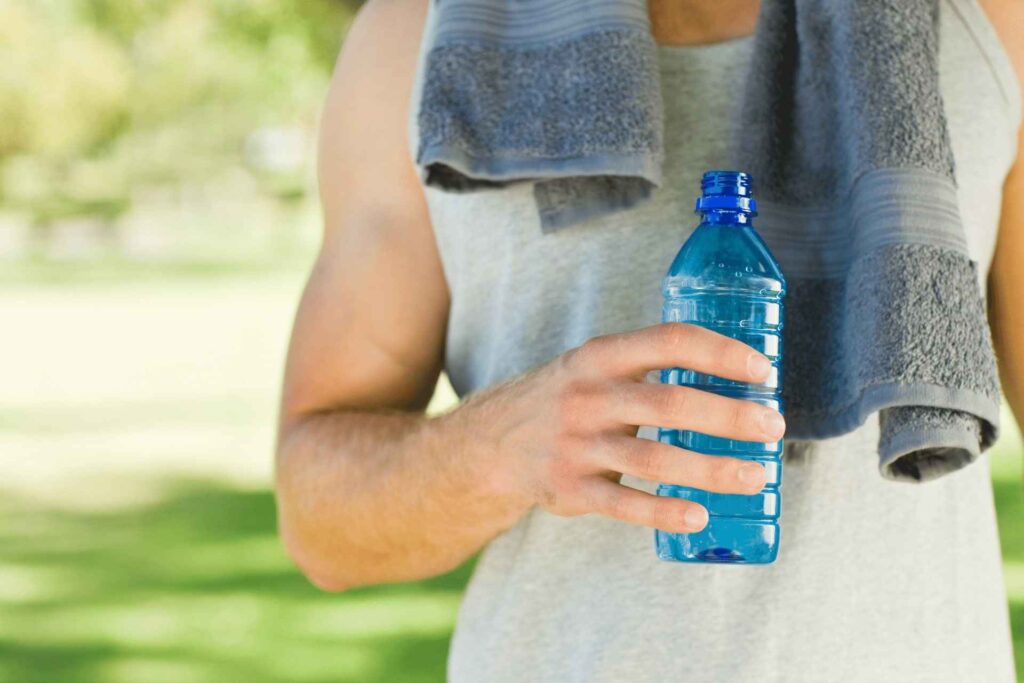
Taking too much water during exercise especially running is not good because it causes abdominal cramps or pain and digestive irritation. But if you feel dryness in the mouth a few sips don’t cause any problem.
Conclusion/Summary
So the answer to the question “Why does your breathing rate increase when you exercise” is that the body needs more energy during exercise so that the body breathes rapidly because the breakdown of food molecules and release of energy require oxygen which is supplied through breathing. Also, the breakdown of food molecules (glucose) releases carbon dioxide and water as by-products which should be removed from the body and aid rapidity in breathing. Doing regular exercise has a beneficial effect on breathing making you work with less energy because exercise increases stamina and also enhances breathing ability.
If you have a question or idea hit the comment section to notify me.





